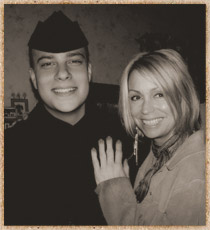Suicide is not something that is talked about openly in any group. Families who have experienced a loved one’s death by suicide often find themselves secluded and without support. We are bad, as a society, when it comes to recognizing what people need to avoid suicide. And part of that is because there is no one-size-fits-all remedy.
When it comes to veteran suicide, there is a greater shroud of mystery that seems to swallow it whole. Part of this is our reluctance to realize that even the “strong” people in society may need help. Another part of this seems to be our unwillingness as a country to recognize that these veterans were put in harm’s way in our name and that this harm did not end once they left the battle zone. In fact, for some veterans, the home front is just as much or more of a battle zone as their time in the service. It is, sadly, no surprise that veterans are 50% more likely to commit suicide than non-veterans.
As an organization, it would be impossible and disingenuous to say that we can single-handedly end veteran suicide. We cannot reach every veteran who needs us and every veteran who needs us may not be ready for our program. We have had several veterans start the program who were not equipped to deal with the needs of a psychiatric service dog, the demands of a new training regimen and the reality that civilian life might be right around the corner. And we have had veterans die by suicide while in our program. As you can imagine, this is difficult for us and we always stop and reassess both our program and what we did with that student to see if we can work to prevent it in the future.
What we can do is to continue our work and to continue the conversation.
One veteran and one dog at a time, we keep pushing forward. Every year we stop to reassess how we do things and incorporate new methods into our work. This year during Suicide Awareness Month, I am reminded that this kind of review is necessary. It is what keeps us fresh. It’s what enables us to deal with more veterans and more dogs in new and innovative ways.
And it’s what keeps the conversation going…and we need to keep talking about this. Our silence is only letting it happen more often.
For those who we haven’t reached yet or those who we may never reach: Please seek help. There is help out there. There are people who know how to help and are willing to listen to what you need. Sometimes these people are other veterans, sometimes they are not. We know that sometimes the biggest battle can be getting out of bed in the morning. But that battle is worth it and there are people out there willing to help.
For those who have lost a loved one to suicide, we are reminded this month of your loss and dedicate our efforts to preventing the next one.
And for those of you who want to keep the conversation going, let’s do that together.
——————-



